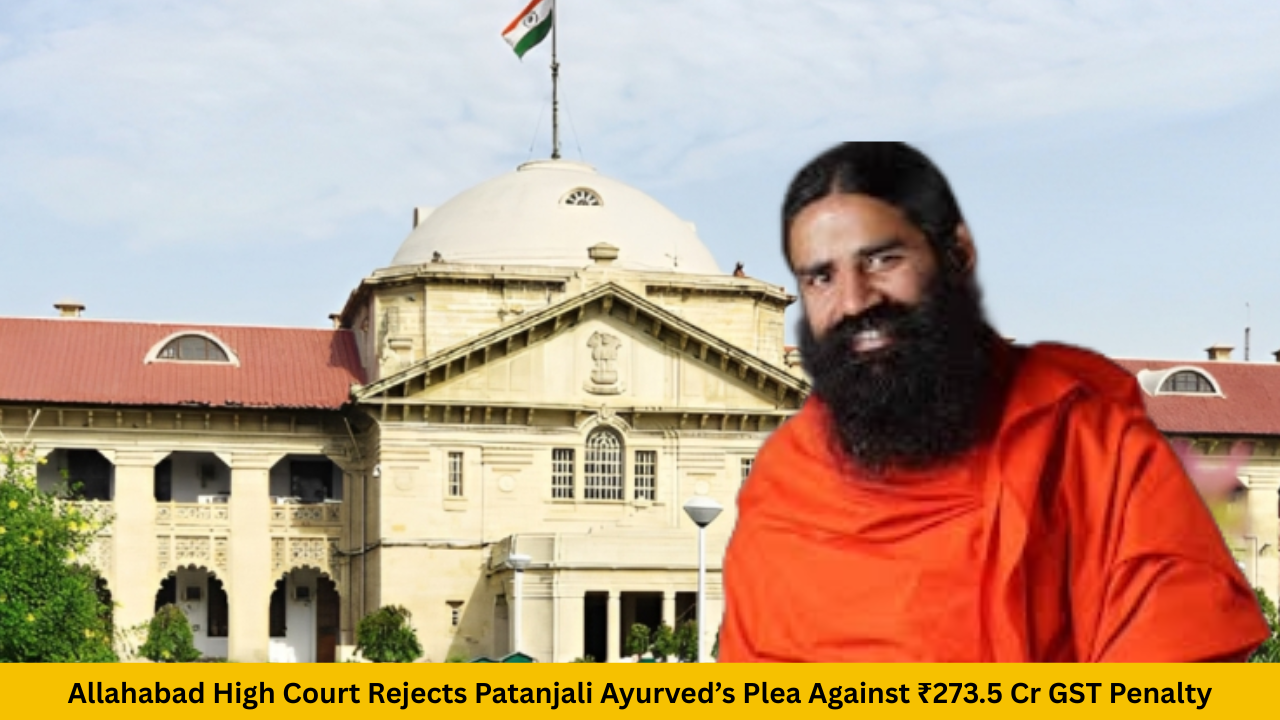Allahabad High Court Rejects Patanjali Ayurved’s Plea Against ₹273.5 Cr GST Penalty, Confirms Civil Nature of Tax Enforcement
Allahabad High Court Upholds ₹273.5 Crore GST Penalty Against Patanjali Ayurved
In a landmark ruling, the Allahabad High Court has dismissed Patanjali Ayurved Limited’s petition challenging a ₹273.5 crore penalty levied under the Goods and Services Tax (GST) Act, clarifying that such penalties can be imposed through civil proceedings without requiring criminal prosecution.
⚖️ Court’s Interpretation of GST Law
A division bench comprising Justices Shekhar B. Saraf and Vipin Chandra Dixit concluded that penalties under Section 122 of the Central GST (CGST) Act are civil and do not require a criminal trial.
“After detailed analysis, it is clear that the proceeding under Section 122 of the CGST Act is to be adjudicated by the adjudicating officer and is not required to undergo prosecution,” the bench ruled.
The court emphasised that tax authorities possess the legitimate power to impose penalties in response to GST violations based on adjudication and not through criminal courts.
🧾 Background: Circular Trading Allegations
The case originated from an investigation by the Directorate General of GST Intelligence (DGGI), Ghaziabad, which uncovered suspicious transactions and circular trading involving Patanjali Ayurved’s manufacturing units in Haridwar, Sonipat, and Ahmednagar.
Authorities alleged that Patanjali Ayurved issued fake tax invoices to claim Input Tax Credit (ITC) without the actual supply of goods. A show cause notice was issued on April 19, 2024, invoking penalties under Section 122(1), clauses (ii) and (vii) of the CGST Act.
🧑⚖️ Civil Penalty vs Criminal Liability
Patanjali’s legal counsel argued that such a significant penalty should be preceded by a criminal trial. However, the court reaffirmed the Supreme Court’s past observations that tax penalties are coercive and remedial, and not criminal in nature.
This means that tax departments can proceed with monetary enforcement measures without having to wait for a criminal conviction.
📌 Implications for Businesses and Tax Authorities
The ruling is expected to strengthen the hands of the GST enforcement agencies and will likely serve as a legal precedent for future tax evasion and ITC fraud cases. It reinforces that tax penalties can be pursued independently of criminal proceedings.
“This judgment will make businesses rethink their compliance models. It’s a wake-up call,” said a senior GST consultant.
With ongoing scrutiny on tax practices, especially in high-profile firms like Patanjali, companies may face increased pressure to maintain transparency in invoicing and ITC claims.
Investigating the Legal Battle: Patanjali’s Apology and the Allopathy Perspective
Discover more from
Subscribe to get the latest posts sent to your email.










1 COMMENTS